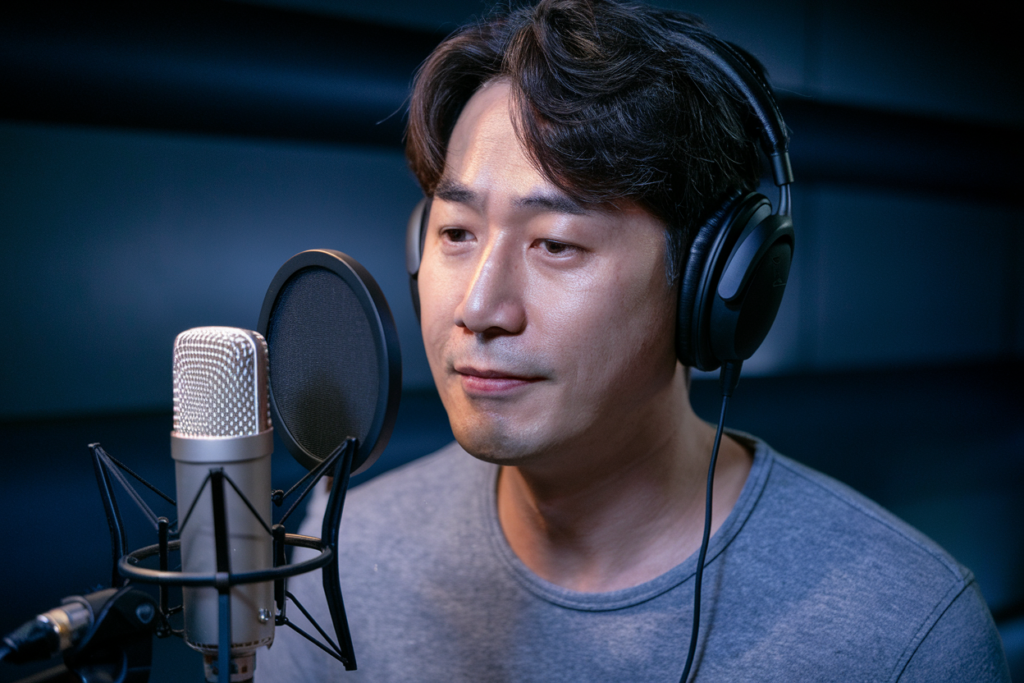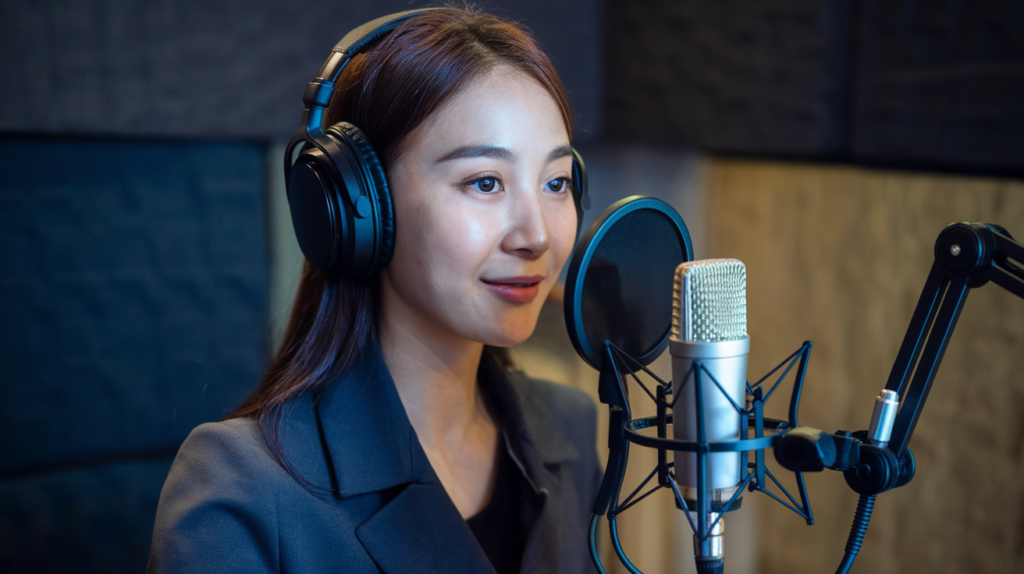Key Takeaways
- Regional Variations: Korean voiceover accents differ significantly by region, each contributing unique characteristics to voice acting and enhancing audience connection.
- Seoul Accent as Standard: The Seoul accent is often viewed as the neutral standard in media, making it versatile for a wide range of character portrayals.
- Emotional Depth with Gyeongsang Dialect: The Gyeongsang dialect is known for its sharp intonations, perfect for conveying strong emotions in dramatic roles.
- Warmth of Jeolla Dialect: The softer sound of the Jeolla dialect excels in nurturing characters and heartwarming narratives, fostering a sense of compassion.
- Comedic Timing with Chungcheong Dialect: The relaxed pace of the Chungcheong dialect enhances comedic performances, adding relatability to everyday situations.
- Authenticity from Gangwon Dialect: Incorporating the Gangwon dialect can ground characters in rural settings and provide authenticity that resonates with local audiences.
Ever wondered how regional accents shape the world of Korean voiceover? Each area in Korea boasts its own unique way of speaking, influencing not just everyday conversation but also the nuances in voice acting. Understanding these accents can be a game-changer if you’re diving into the realm of dubbing or localization.
Korean voiceover accents vary significantly from region to region, each carrying its own charm and distinctiveness. Whether you’re a budding voice actor or an industry professional, knowing these differences can enhance your work and connect you better with diverse audiences. Let’s explore how geography shapes vocal expression in Korea and why it matters for anyone looking to make their mark in this vibrant field.
Overview of Korean Voiceover Accents
Korean voiceover accents vary significantly by region, each bringing its distinct flavor to the art of voice acting. Understanding these nuances is crucial for any aspiring or professional voice artist looking to connect with audiences effectively.
In the Seoul area, you’ll notice a more neutral accent that many consider standard in media and entertainment. This accent often serves as a base for voice actors because it resonates well across various demographics. When you hear a character speaking in this tone, it likely aims to appeal to a broader audience.
Moving southward, the Gyeongsang dialect stands out with its sharp intonations and unique rhythm. Voice actors using this accent can convey strong emotions vividly, making them ideal for dramatic roles. The energetic quality helps scripts come alive and captivates listeners.
In contrast, the Jeolla dialect offers a softer sound characterized by its gentle cadence. This accent lends itself well to nurturing or friendly characters. A skilled voice actor can bring warmth through this regional touch, creating an inviting atmosphere in their delivery.
Further east lies the Gangwon dialect, known for its slight drawl and distinctive pronunciation patterns. While less common in mainstream media, incorporating this accent into your projects can add authenticity when portraying characters from rural backgrounds or specific local narratives.
Lastly, let’s not forget about the Chungcheong dialect featuring a relaxed pace and unique vocabulary choices. Characters voiced with this accent often feel relatable and down-to-earth—perfect for comedic roles or slice-of-life stories where genuine connection matters most.
Major Regions and Their Accents
Korean voiceover accents vary significantly by region, each bringing unique characteristics that enrich voice acting. Understanding these distinctions is essential for any aspiring or professional voice actor aiming to connect with diverse audiences.
Seoul Accent
The Seoul accent serves as the standard in media, often recognized for its neutrality and clarity. This accent features a smooth tone with less regional variation, making it accessible to the widest audience. Voice talent using this accent can easily portray a range of characters, from authoritative figures to everyday individuals. Its versatility makes it a popular choice for commercial voiceovers and narrations.
Busan Accent
Busan’s accent stands out with its sharp intonations and vibrant energy. Often perceived as more emotional, this dialect effectively conveys passion and intensity in performances. Voice artists adopting the Busan accent excel in dramatic roles or content requiring strong emotional delivery. The distinctiveness of this accent adds depth to characters portrayed in animated series or film dubbing.
Incheon Accent
The Incheon accent has subtle nuances that reflect both urban and coastal influences. It combines aspects of the Seoul dialect while incorporating unique local expressions, creating an authentic feel for character portrayals rooted in this region. Voice actors utilizing the Incheon accent find success in projects that require a relatable yet distinctive sound, ideal for slice-of-life narratives or light-hearted animations.
By recognizing these regional accents, you can select the right voice actor who not only fits your project but also resonates with your target audience effectively.
Influences on Voiceover Accents
Understanding the influences on voiceover accents enriches your appreciation of regional variations in Korean voice acting. Each accent tells a story, shaped by cultural elements and historical contexts.
Cultural Factors
Cultural nuances play a significant role in shaping voiceover accents across Korea. Local traditions, social norms, and even culinary practices influence how people communicate. For instance, areas with strong community ties often exhibit warmth in their speech patterns, while urban locales may adopt a brisker pace. This difference impacts the delivery style of voice talent; softer tones might resonate better for nurturing characters from Jeolla, whereas sharper intonations are effective for dramatic roles typical of Gyeongsang. Recognizing these cultural subtleties helps you understand why certain accents evoke specific emotions or reactions.
Historical Context
The historical backdrop of each region also contributes to its unique accentual traits. Various migrations and settlements over centuries led to distinct dialects developing within Korea. The Seoul area’s neutral accent emerged as media’s standard due to its accessibility during rapid urbanization post-Korean War. In contrast, regions like Busan retained strong local characteristics reflecting their maritime heritage and economic history. These historical influences shape not only the sound but also the personality conveyed by voice artists during performances. Acknowledging this context allows you to appreciate how deeply rooted these accents are in Korean identity and storytelling.
By exploring these influences, you’re better equipped to select a suitable voice actor who embodies the essence needed for your project—one that resonates authentically with your target audience.
Applications in Media and Entertainment
Regional accents play a crucial role in Korean media and entertainment. Understanding these voiceover nuances enhances your projects’ authenticity, drawing audiences into the story. Each accent brings unique qualities to characters, impacting how viewers perceive them.
Dramatic Performances
The Gyeongsang dialect, known for its sharp intonations, excels in conveying strong emotions. When you select a voice actor with this accent for dramatic roles, expect heightened tension and engagement from audiences. This dialect’s intensity can transform a performance, making it memorable.
Nurturing Characters
For softer characters or heartwarming narratives, the Jeolla dialect shines through. Its gentle sound evokes feelings of warmth and compassion. Choosing a voice artist skilled in this regional accent ensures that nurturing moments resonate deeply with viewers.
Comedic Roles
The Chungcheong dialect’s relaxed pace fits perfectly for comedic or slice-of-life stories. This unique rhythm adds relatability to everyday situations, enhancing humor without overshadowing the narrative. A voice over talent familiar with this style can deliver laughs while keeping the storyline intact.
Rural Authenticity
In rural-themed productions, consider the Gangwon dialect’s slight drawl to add authenticity. This accent grounds characters in their environment, creating a sense of place that resonates with local audiences while attracting those interested in diverse stories.
Versatility Across Genres
The Seoul accent remains popular due to its neutrality and clarity across various genres. Voice actors using this accent can adapt seamlessly between different character types—whether it’s an authoritative figure or a relatable friend—ensuring broad appeal.
By recognizing these regional accents and their applications within media and entertainment, you enhance your ability to connect effectively with target audiences through authentic performances tailored to specific roles.
Conclusion
Understanding the regional accents in Korean voiceover work can transform your approach to character portrayal. By recognizing the distinct qualities of each dialect you’ll be better equipped to choose the right accent for your projects. Whether you’re aiming for the emotional depth of Gyeongsang or the warmth of Jeolla incorporating these nuances enhances authenticity.
As you navigate the diverse landscape of Korean voice acting remember that every accent has its unique charm and purpose. Embrace these variations to create more relatable and engaging performances that resonate with audiences from different backgrounds. Ultimately mastering these regional accents will not only elevate your craft but also deepen your connection with viewers, making your work truly stand out in a competitive industry.
Frequently Asked Questions
What is the main focus of the article on Korean voiceover work?
The article explores how regional accents in Korea influence voice acting and dubbing. It highlights the significance of understanding these accents for both aspiring and professional voice actors to enhance their performances and connect with diverse audiences.
Why are regional accents important in voiceover work?
Regional accents are crucial as they provide authenticity to characters, allowing voice actors to effectively convey emotions and connect with their audience. Different regions have unique speech patterns that suit various roles, enhancing overall performance quality.
What are some characteristics of the Seoul accent in voiceover?
The Seoul accent is recognized for its neutrality and clarity, making it versatile across different character portrayals. It’s often considered a standard media accent due to its broad appeal and accessibility.
How does the Gyeongsang dialect impact dramatic performances?
The Gyeongsang dialect features sharp intonations that effectively convey strong emotions, making it ideal for dramatic roles. Its distinctive sound can enhance tension and engagement in storytelling.
What role does cultural context play in shaping regional accents?
Cultural factors, historical contexts, local traditions, and social norms shape speech patterns within regions. These influences contribute to distinct accents that resonate differently based on character traits or narrative styles.
Which dialect is best suited for nurturing characters?
The Jeolla dialect has a softer sound that makes it particularly well-suited for nurturing characters. This warmth helps create relatable connections between performers and their audience.
How can understanding these accents benefit aspiring voice actors?
By recognizing regional accents’ nuances, aspiring voice actors can choose appropriate approaches for their projects. This knowledge helps them select roles more effectively, ensuring they resonate with target audiences authentically.
What makes the Gangwon dialect unique in voiceover narratives?
The Gangwon dialect features a slight drawl that adds authenticity to rural-themed characters. Its distinctiveness enriches storytelling by providing a genuine representation of rural life experiences.
Why is the Chungcheong dialect effective for comedic narratives?
The Chungcheong dialect’s relaxed pace coupled with unique vocabulary creates relatable humor suitable for comedic or slice-of-life stories. Its easygoing nature engages viewers through light-hearted interactions.
How do regional accents affect audience perception in media?
Regional accents enhance project authenticity and influence how audiences perceive characters. They help establish relatability while enriching cultural representation within narratives across various genres.







